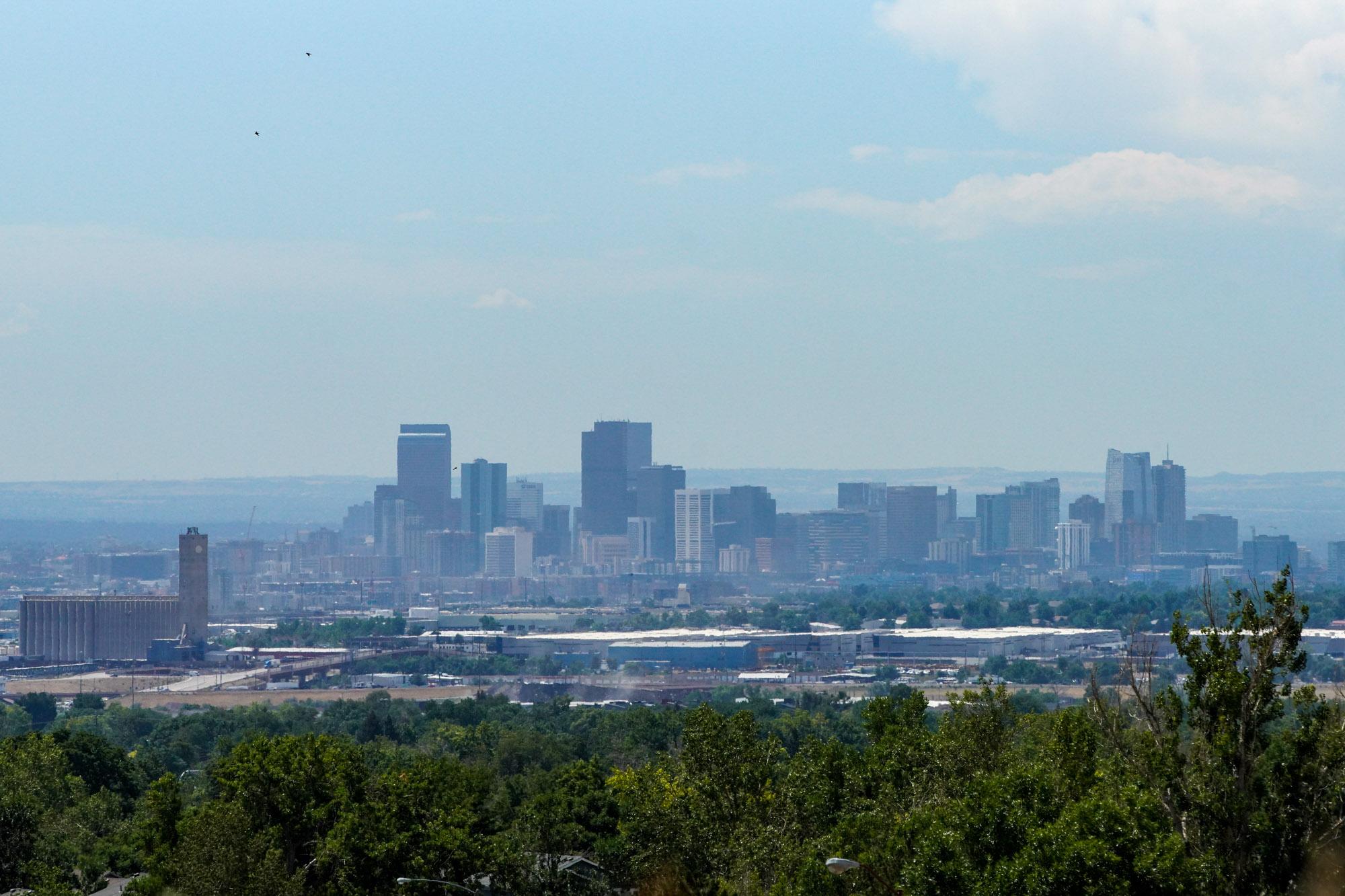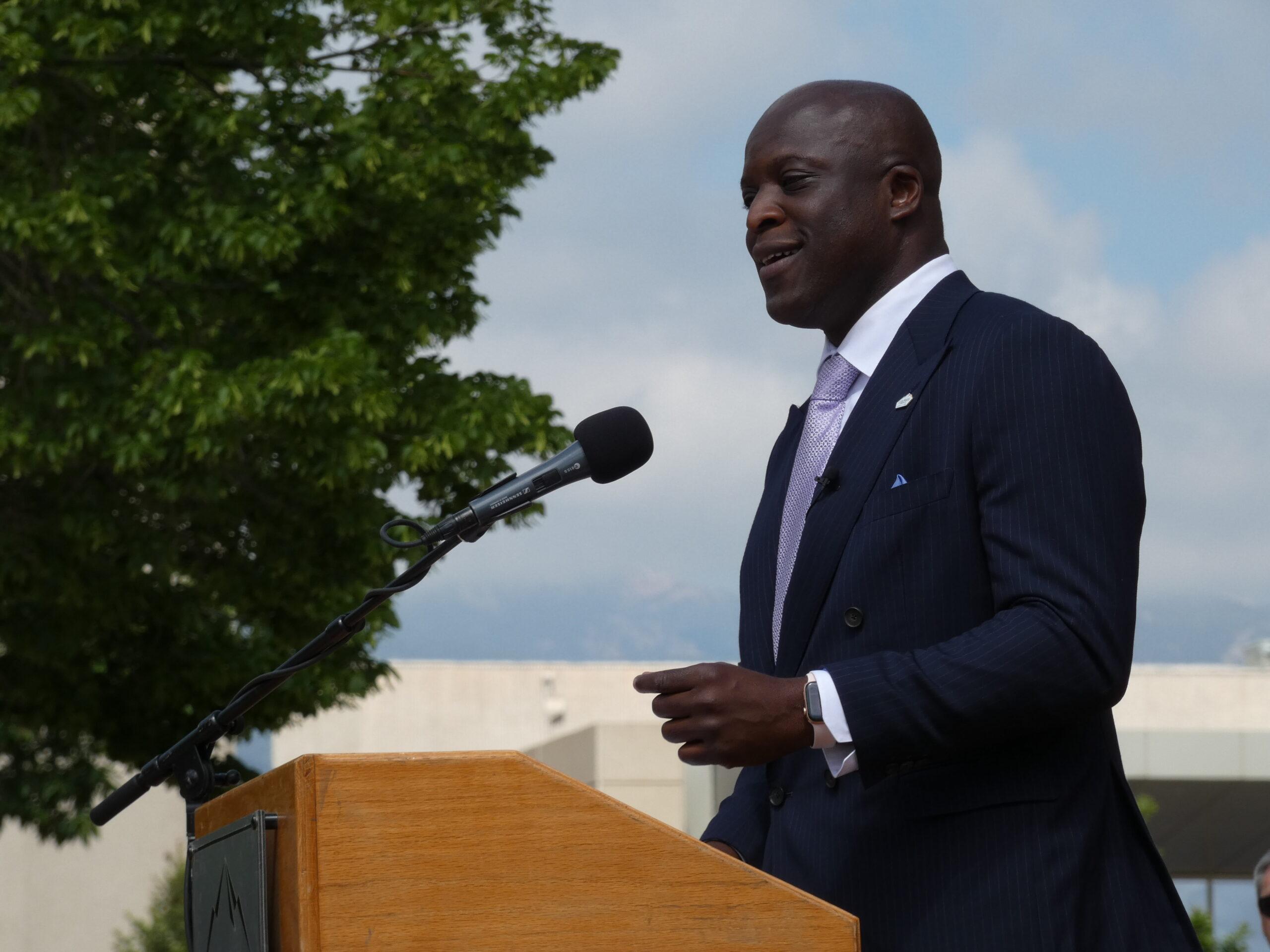
After decades of failures to meet federal ozone standards along the Front Range, a coalition of clean air advocates says it's past time Colorado overhauls how it approves new sources of pollution.
That demand has now been distilled into a legislative proposal set for introduction later this week.
At a capitol press conference Monday, state Reps. Jennifer Bacon and Jenny Willford — Democrats from Denver and Northglenn, respectively — said, if approved, the upcoming Protecting Communities from Air Pollution Act would force businesses to prove future projects wouldn't further degrade local air quality.
"If we know we have air quality issues, we need to be questioning those who want to get into a world of emissions," Bacon said. "It seems to me a normal question we should ask before we issue permits."
The upcoming legislation would also require more careful coordination between the Colorado Air Quality Control Commission and the Colorado Oil and Gas Conservation Commission. In addition, it would set new emissions standards for massive internal combustion engines used to power the drilling and hydraulic fracturing process at oil and gas sites, advocates said.
At the core of the conflict is Colorado's strategy to limit ground-level ozone.
The pollutant is a significant health concern because it drives asthma cases and exacerbates existing heat and lung conditions. It's not easy to control because ozone doesn't come directly from smokestacks or tailpipes. It forms when two categories of common pollutants—nitrogen oxides and volatile organic compounds—react in the atmosphere amid heat and sunlight.
While most ozone along the Front Range results from out-of-state or natural sources, state air quality models show emissions from local polluters push concentrations above federal health standards.
Repeated violations of those standards led to a federal crackdown last year. The U.S. Environmental Protection Agency reclassified the Front Range as a "severe" ozone violator last year, forcing the state to fashion a suite of policies to free the region from its summertime struggles with the pollutant.
As a part of that process, state regulators issued a major correction to its ozone models. Those new predictions suggest the oil and gas industry is now by far the largest source of local, man-made ozone ingredients, producing about half of all the region's emissions. Additional analysis shows all vehicles along the Front Range have a smaller impact than drilling and fracking.
Willford said the problem will only grow worse if the state continues to allow new wells without a more careful assessment of air quality impacts. Colorado has permitted about 1,000 new wells annually over the last five years.
"If we're gonna clean up our air, we can no longer afford to increase the emissions of harmful air pollutants," Willford said.
The bill will face stiff opposition from the oil and gas industry. It's also unclear if it has the support of Gov. Jared Polis.
Rebecca Curry, a Colorado policy counsel for Earthjustice who's helping draft the bill, emphasized the legislation wouldn't amount to "a total ban" on new oil and gas permits. She said it would instead make the process more accountable to air quality concerns.
The message hasn't calmed industry advocates. Dan Haley, the president and CEO of the Colorado Oil and Gas Association, said the planned legislation risks raising energy prices without reducing air pollution.
"This is not a serious attempt to lower ozone, it’s a back-door ban on oil and gas," Haley said. "In fact, it would only downgrade air quality as Colorado would be forced to import out-of-state and foreign energy as new production of oil and gas is eliminated."
Another question is Gov. Jared Polis' support.
Last month, the governor outlined his own plan calling for the oil and gas industry to cut nitrogen oxide emissions 30 percent by 2025 and 50 percent by 2030. It noted new technologies, like electric drilling and fracking rigs, would be essential to meeting those goals. Supporters of the legislation said it complements those plans by providing the tools necessary to enforce the targets
But the governor has been skeptical that permitting reforms would assist his efforts. In a letter on the new emissions targets, he wrote the idea risks creating a significant administrative burden and raising costs for taxpayers.
It appears those concerns haven’t subsided over the last few weeks. Conor Cahill, a spokesman with the governor’s office, said his office has only seen a draft of the legislation, but fears it could hinder the economy as private companies and the federal government rush to invest in the state’s industrial capacity.
“It would be extremely challenging to implement the policies outlined in the bill and would stall planned rule-making in 2023 to tackle ozone and other air pollutants,” Cahill said. “Our air regulators are focused on standards and regulations that will have the largest benefit to the air we breathe."









